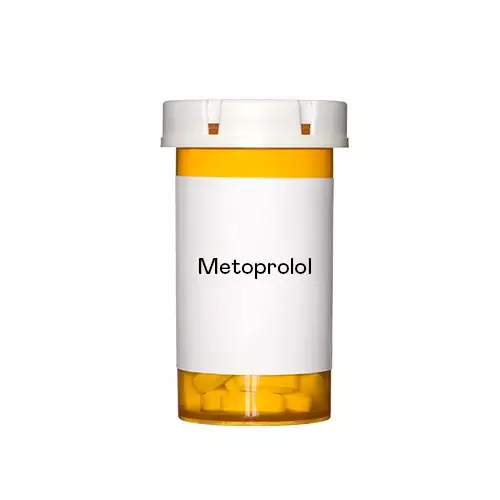- Home
- Medical news & Guidelines
- Anesthesiology
- Cardiology and CTVS
- Critical Care
- Dentistry
- Dermatology
- Diabetes and Endocrinology
- ENT
- Gastroenterology
- Medicine
- Nephrology
- Neurology
- Obstretics-Gynaecology
- Oncology
- Ophthalmology
- Orthopaedics
- Pediatrics-Neonatology
- Psychiatry
- Pulmonology
- Radiology
- Surgery
- Urology
- Laboratory Medicine
- Diet
- Nursing
- Paramedical
- Physiotherapy
- Health news
- Fact Check
- Bone Health Fact Check
- Brain Health Fact Check
- Cancer Related Fact Check
- Child Care Fact Check
- Dental and oral health fact check
- Diabetes and metabolic health fact check
- Diet and Nutrition Fact Check
- Eye and ENT Care Fact Check
- Fitness fact check
- Gut health fact check
- Heart health fact check
- Kidney health fact check
- Medical education fact check
- Men's health fact check
- Respiratory fact check
- Skin and hair care fact check
- Vaccine and Immunization fact check
- Women's health fact check
- AYUSH
- State News
- Andaman and Nicobar Islands
- Andhra Pradesh
- Arunachal Pradesh
- Assam
- Bihar
- Chandigarh
- Chattisgarh
- Dadra and Nagar Haveli
- Daman and Diu
- Delhi
- Goa
- Gujarat
- Haryana
- Himachal Pradesh
- Jammu & Kashmir
- Jharkhand
- Karnataka
- Kerala
- Ladakh
- Lakshadweep
- Madhya Pradesh
- Maharashtra
- Manipur
- Meghalaya
- Mizoram
- Nagaland
- Odisha
- Puducherry
- Punjab
- Rajasthan
- Sikkim
- Tamil Nadu
- Telangana
- Tripura
- Uttar Pradesh
- Uttrakhand
- West Bengal
- Medical Education
- Industry
Metoprolol use among COPD patients linked to severe exacerbation of disease

U.S.A.: Metoprolol was linked to a greater risk of severe exacerbation, according to the BLOCK COPD study (β -Blockers for the Prevention of Acute Exacerbations of Chronic Obstructive Pulmonary Disease), which was published in the Annals of the American Thoracic Society journal.
Additionally, this study showed a higher rate of severe COPD exacerbations to be associated with FVC bronchodilator responsiveness, which was unrelated to metoprolol use.
Globally, chronic obstructive pulmonary disease (COPD) ranks as one of the main causes of death. The overall cost of managing COPD increases with COPD exacerbations associated with poor prognosis and severe COPD exacerbations necessitating hospital admission. Observational studies have already looked at the positive impact of using -blockers in COPD patients. Despite the fact that extensive meta-analyses and observational studies have shown that using -blockers can reduce mortality, hospital admissions, and exacerbations in COPD patients, doctors are still hesitant to recommend them.
In order to examine changes in lung function between treatment groups throughout the trial, the authors of the study looked at whether baseline bronchodilator response or early reduction in forced expiratory volume in one second (FEV1) or forced vital capacity was linked to exacerbation risk.
Utilizing linear mixed-effect models, the study examined variations in lung function (FEV1 and FVC) between treatment groups over the course of the intervention. To assess the relationship between baseline bronchodilator responsiveness (FEV1, FVC, and combined FEV1 and FVC), early post-randomization changes in lung function (14 d), and the interaction between treatment assignment and these measures with risk of any or severe or very severe exacerbations, Cox proportional hazards models were used. In order to determine the connection between bronchodilator responsiveness, the interaction between bronchodilator responsiveness and treatment assignment, and exacerbation rate, negative binomial models were used.
Conclusive points of the trial:
- Participants in the metoprolol group experienced a substantially higher decline in logarithmic FEV1 from baseline to visit on Day 28 during the 336-day treatment period than individuals in the placebo group.
- In comparison to those in the placebo group, those who took metoprolol experienced a considerably higher decline in FVC from baseline to visits on Days 14 and 28, as well as a significantly greater decline in logarithmic FVC from baseline to visits on Days 42 and 112.
- There were no correlations between early lung function reduction and time to any severe or very severe exacerbations, nor were there any correlations between early lung function reduction and therapy assignment.
- On the incidence or frequency of exacerbations, there were no interactions between the treatment arm and the baseline bronchodilator responsiveness measurements.
- In contrast, those who were already responsive to FVC bronchodilators had a greater incidence of severe or very severe exacerbations (adjusted rate ratio, 1.62; 95% confidence interval, 1.04-2.48).
"While baseline FVC bronchodilator responsiveness was linked to a 60% greater probability of severe or very severe exacerbations, early lung function decrease and baseline bronchodilator responsiveness did not correlate with the treatment arm to anticipate exacerbations," the authors asserted.
Early on in the treatment period, metoprolol was connected to decreased pulmonary function, but these effects were minor and transient, they concluded.
REFERENCE
Parekh TM, Helgeson ES, Connett J, Voelker H, Ling SX, Lazarus SC, Bhatt SP, MacDonald DM, Mkorombindo T, Kunisaki KM, Fortis S, Kaminsky D, Dransfield MT. Lung Function and the Risk of Exacerbation in the β-Blockers for the Prevention of Acute Exacerbations of Chronic Obstructive Pulmonary Disease Trial. Ann Am Thorac Soc. 2022 Oct;19(10):1642-1649. doi: 10.1513/AnnalsATS.202109-1042OC. PMID: 35363600; PMCID: PMC9528740.
Dr Kamal Kant Kohli-MBBS, DTCD- a chest specialist with more than 30 years of practice and a flair for writing clinical articles, Dr Kamal Kant Kohli joined Medical Dialogues as a Chief Editor of Medical News. Besides writing articles, as an editor, he proofreads and verifies all the medical content published on Medical Dialogues including those coming from journals, studies,medical conferences,guidelines etc. Email: drkohli@medicaldialogues.in. Contact no. 011-43720751


